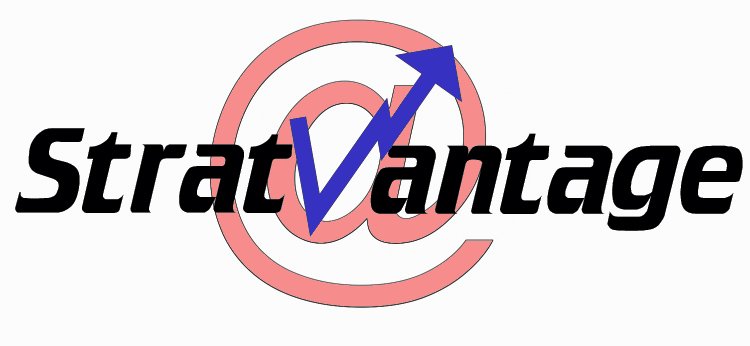StratVantage can help your business establish thought leadership in your industry through the creation of white papers and newsletters. Below are some examples of work we’ve done for our clients. For more about white papers, click here.
Companies Collaborate on IT Practices
Article in Enterprise Architect Magazine, October, 2003
Abstract
Is your enterprise grumbling over symptoms like forced software upgrades, unsettled software that is no longer supported, and hefty annual maintenance fees that deliver little ROI? Two years ago a group of CIOs from Minnesota companies diagnosed themselves as having chronic application vendor dissatisfaction syndrome caused by their lack of control over mission-critical software.
Why Your Company Needs a Professional Wireless Network
A Reside Newsletter issue, October, 2003
Abstract
Now you may think from the title of this article that I’m going to write about all the business benefits of wireless networking, but I’m not.
What I am going to talk about is the need for businesses to take wireless networking seriously enough to not just slap a few consumer-grade Linksys access points up in the ceiling and call it a day.
Innovative Marketers Target Unwired Customers
A NetSuds Newsletter issue, May, 2003
Abstract
“The future is already here, it’s just not evenly distributed yet.” – William Gibson, science fiction writer
Now that 75 percent of the US population has access to the Internet, there is increasing interest among marketers in a variety of new technologies that they can use to reach customers. In addition to the more established tools such as email, online newsletters, and Web sites are some newer ones, such as Short Messaging Service (instant messaging for cell phones), online affinity clubs (like various musicians’ fan clubs), and Web Instant Messaging (such as AOL Instant Messenger and marketing tools like ActiveBuddy).
Grid Computing Takes Off in the Enterprise
Article in Enterprise Architect Magazine, May, 2003
Abstract
Right now, your computer and every other computer in your enterprise is wasting resources. Millions of CPU cycles are doing nothing more than warming the air. Megabytes of disk space sit unused. Your network connection idles as you read downloaded Web pages. On a daily basis, you and everyone you work with typically use only a small fraction of your computers’ capacity.
What if you could put all these underemployed resources to work?
Wherever They Go, There You Are
A Reside Newsletter issue, January, 2003
Abstract
A rather important event for cell phone users happened not long ago, and almost nobody noticed. For the first time, US users of a wireless service known as Short Messaging System (SMS) can send messages to people who subscribe to a different carrier. So now, for example, a Sprint user can message a Verizon user. This puts US users on the same footing as European users have been for years, and it opens up an exciting new channel for US marketers.
Wherever they go, there you are
A TaylorHarkins Newsletter issue, October, 2002
Abstract
A rather important event for cell phone users happened recently, and almost nobody noticed. For the first time, U.S. users of a wireless service known as Short Messaging System (SMS) can send messages to people who subscribe to a different carrier. So now, for example, a Sprint user can message a Verizon user. This puts U.S. users on the same footing as European users have been for years, and it opens up an exciting new channel for U.S. marketers.
Do you really hate your customers?
A TaylorHarkins Newsletter issue, May, 2002
Abstract
Instead of mining the wealth of user preference data and exploiting the ability to touch their customers via the Instant Messaging capabilities built in to file sharing services such as Kazaa and Morpheus, media companies are trying to litigate their problems away. Meanwhile, savvy marketers outside the music industry are finding new ways of using Instant Messaging and other technology tools to build brand loyalty and develop a better understanding of their customers.
A golden goose for marketers
A TaylorHarkins Newsletter issue, April, 2002
Abstract
What if you had a marketing venue in which you could directly target users, knowing for certain that they’re interested in your product? What if there was a built-in community function in the venue that allowed users to ask you questions about your product in real-time. And what if you could create an automated response service to answer the most frequently asked questions 24/7?
What would you do if you could find such a golden goose?
The record industry has discovered such an animal, but may not yet realize its good fortune. Do you know what the record industry is doing? It’s trying to kill its golden goose—which you may know better as Napster, Morpheus, Kazaa, or any of the music file trading services currently popular.
Business Report – Peer-To-Peer Computing and Your Business
A Geneer Business Report issue, June, 2001
Abstract
Peer-to-Peer (P2P) computing is more than a business-to-consumer (B2C) fad. It has application to real business problems. If you have applications that require lots of bandwidth, disk space, or computing power, consider putting your idle computing resources to work with a P2P application. This edition of The Geneer Business Report examines the P2P phenomenon and some of the ways innovative companies are exploiting this computing methodology.
The Buzz About Hive Computing: Putting Peer-to-Peer Computing to Work
A Geneer White Paper, June, 2001
Abstract
Just as the many cells of a honeycomb make up a hive, the millions of Internet connected computers make up a huge potential supercomputer – a computing hive. If these tremendous resources, an estimated 10 billion MHz of processing power and 10,000 terabytes of storage, could act as one, the network would really be the computer. Hive computing is one of the major types of a recently-popular phenomenon called peer-to-peer (P2P) computing. Today businesses from Wall Street to Main Street are putting idle resources to work solving business problems using hive computing.
Business Report – Open Source and Your Business
A Geneer Business Report issue, May, 2001
Abstract
Open Source software puts a new marketing face on a long tradition of enterprise-class free software. Unlike closed source, packaged applications, when you use Open Source software, you get the source code, which you can modify to fit your needs. You can incorporate Open Source code into commercial products without restriction. Some of the benefits of Open Source software include high quality, stable code, and frequent incremental releases. Disadvantages include uncertain release schedules and dependence on the continued interest of a large community of volunteers. Open Source solutions are available for almost any conceivable application. Some of the world’s largest companies, as well as the Internet itself, depend on Open Source for enterprise applications.
Taking Control of the B2B Exchange: What’s Next in the Supply Chain Evolution
A Geneer White Paper, February, 2001
Abstract
It’s currently fashionable to bash B2B Exchanges, and their future doesn’t appear to be rosy. But what will happen to the electronic commerce revolution? This paper argues that as public exchanges wither, a new form of electronic commerce, the private, supply chain oriented exchange, will emerge as the most prevalent form.
Business Report – XML and Your Business
A Geneer Business Report issue, February, 2001
Abstract
So you’re probably wondering: “This XML stuff I’ve been hearing about, is it just a geek toy or is there some way I can apply it to my business?” This edition of The Geneer Business Report examines some ways that you can incorporate XML into your business today, and some trends that could affect you in the future. Also included is a directory of XML standards efforts.
The Wireless Future: How to Get Connected and Stay Connected
A Geneer White Paper, January, 2001
Abstract
Everybody’s talking about wireless these days. It’s a huge topic. This white paper takes a look at the most impactful wireless topics and helps you understand the wireless opportunities for your business. Technologies considered: PDAs, digital phones, WAP, HDML, Bluetooth, I-mode, and more.

